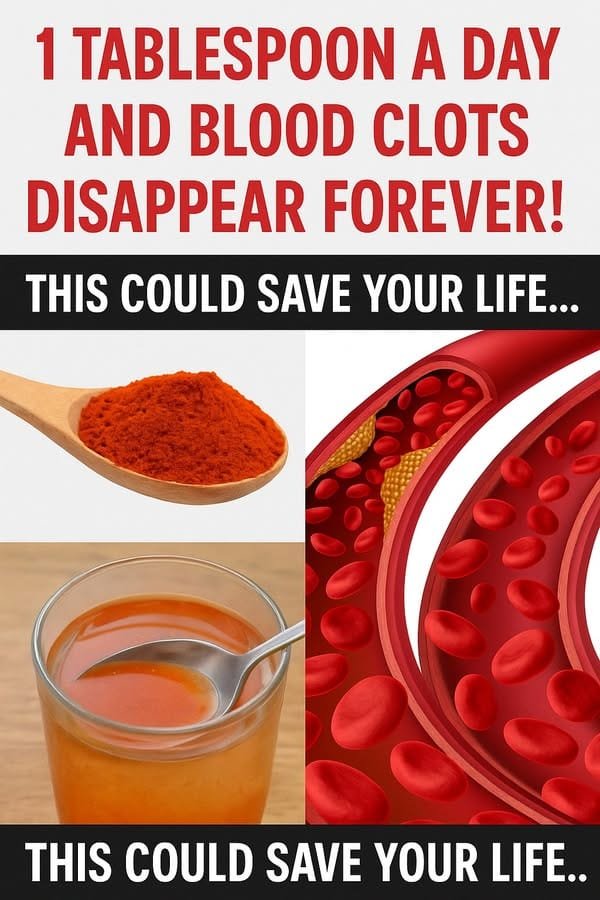How Cayenne Pepper May Help with Blood Clots
In addition to being a hot spice, cayenne pepper has many other health advantages, such as the ability to lower the risk of blood clots. Let’s examine more closely how adding cayenne pepper to your diet may help your heart health.
Improves Blood Flow: Cayenne pepper contains capsaicin, which helps widen blood vessels and improve blood flow. This can lower blood pressure and enhance circulation, reducing the risk of blood clots.
Reduces Inflammation: Cayenne pepper has anti-inflammatory properties that can help reduce the risk of blood clot formation. By combating chronic inflammation, it plays a role in preventing clotting.
Reduces Plaque Build-up: Some studies suggest that capsaicin in cayenne pepper may help reduce plaque build-up in the arteries. This is crucial for preventing conditions that can lead to blood clots.
Daily Intake: Add about one tablespoon of cayenne pepper to your daily diet to experience its health benefits. You can sprinkle it on meals, add it to sauces or dressings, or get creative with recipes. If the spiciness is too intense, start with smaller amounts and gradually increase it as your body adjusts.
Consider Supplements: Capsaicin supplements are also available, providing a more controlled and concentrated form of intake. However, it’s important to consult with a healthcare provider before starting any new supplement, especially if you have underlying health conditions or take medication.
Try Cayenne Pepper Tea: Another popular method is making cayenne pepper tea. Simply add a small pinch of cayenne pepper to hot water, and you can even enhance the flavor with a squeeze of lemon and a touch of honey.
Watch for Sensitivity: Cayenne pepper can cause stomach irritation or discomfort, especially if you’re not used to spicy foods. It’s essential to moderate your intake based on your tolerance level.
Consider Medication Interaction: If you take blood thinners or stomach acid reducers, be cautious with cayenne pepper consumption. It’s always wise to consult with a healthcare professional before incorporating significant amounts of cayenne pepper into your diet.
Not a Cure-All: While cayenne pepper has potential health benefits, it should not be seen as a cure or sole treatment for blood clots or any serious medical conditions. It should be integrated into a well-rounded diet and a healthy lifestyle, in addition to prescribed treatments.
One effective way to avoid blood clots is to include cayenne pepper into your heart-healthy diet. But it’s crucial to keep in mind that it’s just one component of a larger health plan. Maintaining optimum health requires regular medical examinations and tailored medical guidance. Add a little more love to your heart by adding cayenne pepper to your meals!

